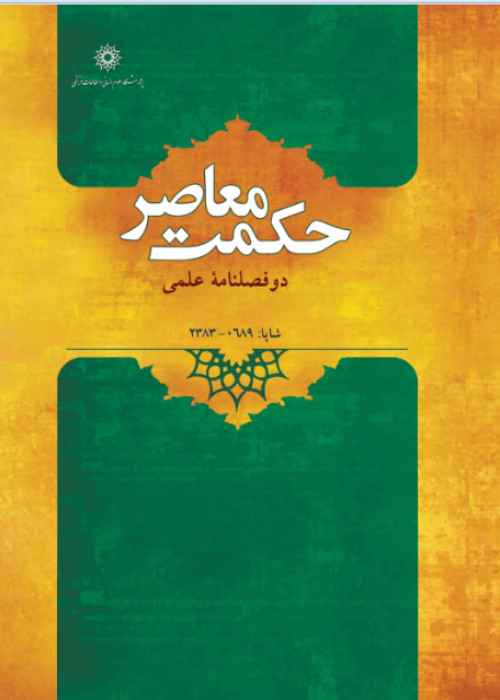A Sadraean Analysis and Critique of Constructed Concepts in Illuminationist Philosophy
This research deals with Mullā Ṣadrā’s objections to constructed (iʿtibārī) concepts in Illuminationist philosophy. A major philosophical issue in Islamic philosophy today is a division of universal concepts into quiddity-based (māhuwī), logical, and philosophical. Suhrawardī and philosophers before him had just discerned the difference between real (ḥaqīqī) and constructed concepts, placing them respectively into objective and subjective categories, and until Mullā Ṣadrā’s time, the division was restricted to first intelligibles (al-maʿqūlāt al-ūlā) or quiddity-based concepts and secondaryintelligibles (al-maʿqūlāt al-thāniya) or logical concepts, and the place of philosophical concepts was not clear.Accordingly, Suhrawardī subsumes concepts such as existence, unity, multiplicity, necessity, possibility, and colorfulness under constructed concepts without drawing a distinction between logical and philosophical concepts. This was mainly because there is no distinction between these concepts in the external world, and because repetition and vicious regress would follow if infinite attributes coextensively existed.In addition to his critique of Suhrawardī for having distinguished concepts into subjective and objective, Mullā Ṣadrā challenged Suhrawardī’s views of each of these concepts.
This research adopts a fundamental descriptive-analytic method and relies on Mullā Ṣadrā’s commentaries on Suhrawardī’s Sharḥ ḥikmat al-ishrāq (Exposition of the wisdom of illumination) to elaborately deal with Suhrawardī’s remarks concerning constructed concepts and Mullā Ṣadrā’s objections to these views. Data of the research have been collected through a library method, and cases were extracted by indexing. Finally, by drawing on the intellectual method, the indexed contents were analyzed and criticized, and the views were critically analyzed and considered.
Here is a summary of findings of the research:A major contribution of Suhrawardī concerning concepts was a division of concepts into subjective and objective, by which all philosophical concepts such as existence, unity, multiplicity, necessity, possibility, colorfulness, and relation are subsumed under purely constructed concepts, without corresponding to anything in the external reality.Suhrawardī’s main reason for the negation of external distinction in the case of philosophical concepts is that the coextensive existence of infinite attributes implies vicious regress and repetition, since in his Talwīḥāt, Suhrawardī proposes a criterion for the distinction between the subjective and the objective and for the impossibility of the distinction in the external world, according to which everything whose occurrence implies repetition and regress counts as constructed.Major objections raised by Mullā Ṣadrā against Suhrawardī’s account of constructed concepts, which serves as the foundation and tenet of the rest of his objections, are as follows:Absence of any distinction between philosophical and logical secondaryintelligibles Confusion between concepts and their instances Failure to take account of the organic composition (al-tarkīb al-ittiḥādī) between quiddities and existences Conflation of the name and what is named Confusion between primary essential predication (al-ḥaml al-awwalī al-dhātī) and common technical predication (al-ḥaml al-shāʾiʿ al-ṣunāʿī). Given these findings, the obstacles, problems, and proposals of the research are as follows:While most of Mullā Ṣadrā’s objections are accurate and based on his insights into the problem of intelligibles, some of his objections are not plausible because of their anachronistic nature. Although in some cases, Suhrawardī’s remarks are attacked and even undermined by Mullā Ṣadrā’s objections, in some cases it is open to us to criticize and adjudicate the two parties and even offer novel contributions to the debate since Mullā Ṣadrā has rested content with Avicenna’s views, among other predecessors, and did not offer an alternative account.
- حق عضویت دریافتی صرف حمایت از نشریات عضو و نگهداری، تکمیل و توسعه مگیران میشود.
- پرداخت حق اشتراک و دانلود مقالات اجازه بازنشر آن در سایر رسانههای چاپی و دیجیتال را به کاربر نمیدهد.



